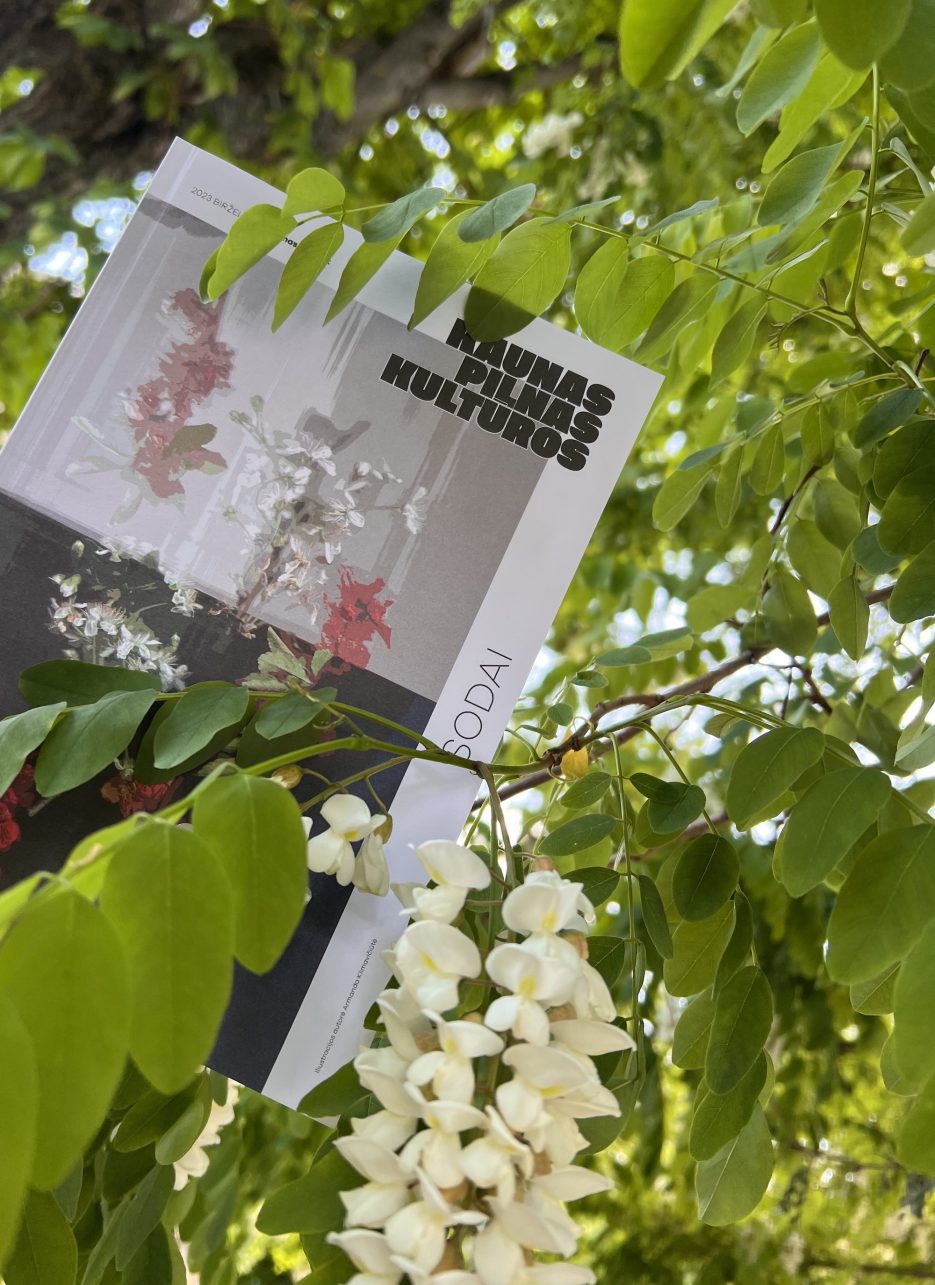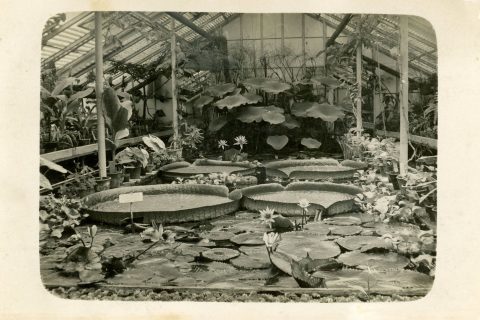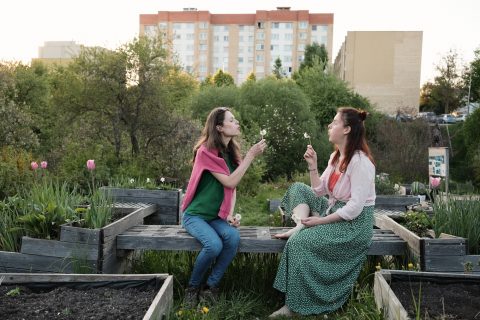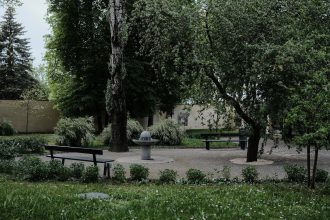Gardening reduces crime!
It seems that this truth, proven by US scientists, should be enough to end urban wastelands. Community, physical activity, and vitamins are additional and equally important arguments.
As Evelina Šimkutė, one of the heroines of this issue, says, “The land is a curious thing.” Real estate always generates more financial benefits than vegetable beds or rows of fruit trees. However, more insightful economists do not hesitate to debate whether humanity needs even more turnover to live better. At the end of May, when a century-old oak tree was cut down in the capital’s Rinktinės Street, journalist Karolis Vyšniauskas aptly observed in a Facebook post that we have already bought everything we need, the only thing that’s missing is a shade for respite offered by a tree.
Urban green spaces for all are a complex issue where history and the future, emotion and science, spirit and matter intertwine. The gardens are on a smaller and more private scale, but the problems are similarly interlaced. Even if you don’t have your own plot, you can discover an unexpected, heavenly garden just by poking your head into the courtyard of an apartment block located closer to the center. Only people might feel shy doing it because you’re not sure whether you’ll be called out or kicked out if you start crawling around the flowerbeds gasping in awe or lounging on a bench that’s witnessed more than a dozen dates.

But worry not! In June, we invite you to discover what is intimate but also open to others. Spiritual but requires a lot of work, just like any other creative endeavor. Man-made paintings of nature and rhyming rows of blossoms reflect the inner world (much more accurate than designer interiors polished for Instagram or clothing lines laid out by stylists) impossible without patience, determination, and creative jazz. Turn the pages and let’s visit Maironis and other poets together, the apartment blocks of Šilainiai, let’s get enveloped by Baroque and, of course, the VMU Botanical Garden, celebrating its centenary, as well as the collective gardens that deserve academic research. And can you guess what type of ‘gardens’ we discovered in Vilkija?




